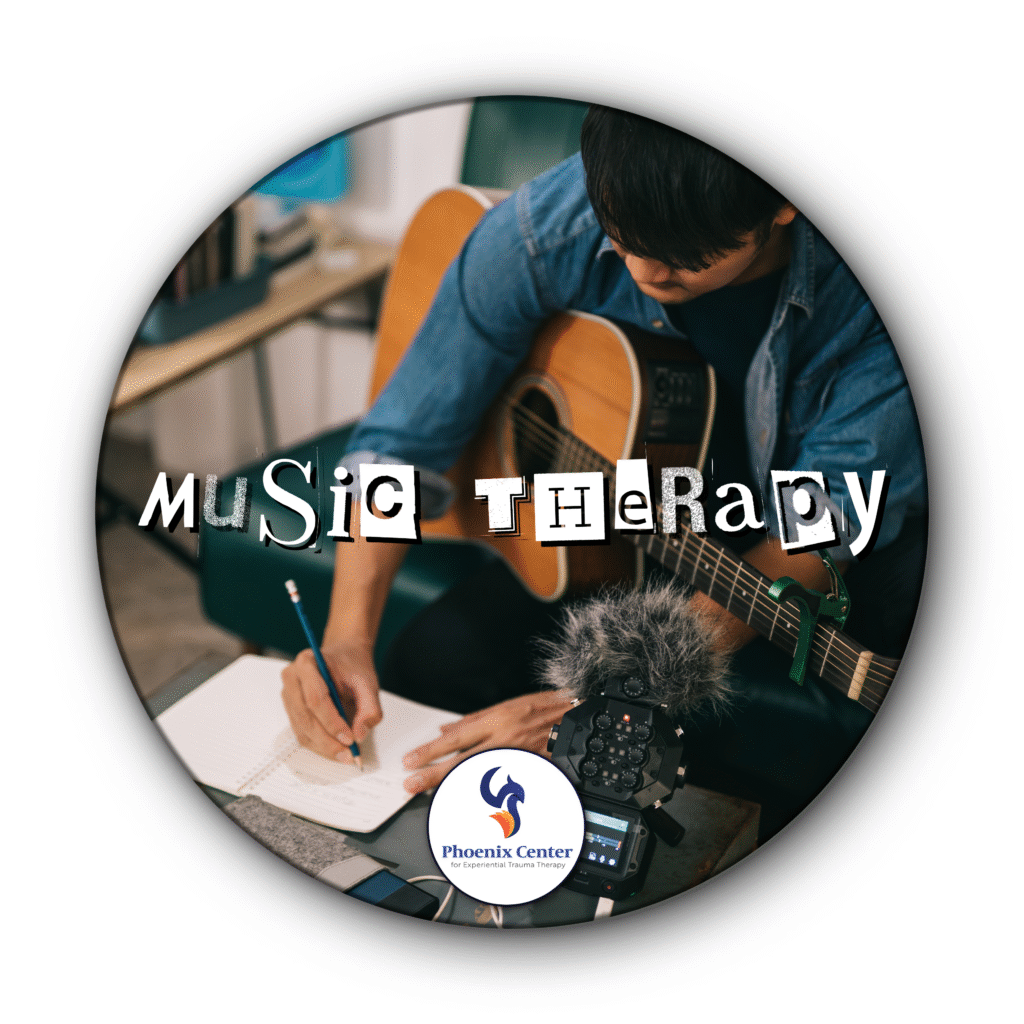By Meryl Lammers, MT-BC (Music Therapist-Board Certified)
Music Therapy is the clinical and evidence-based use of music interventions to accomplish individualized goals within a therapeutic relationship by a credentialed professional who has completed an approved music therapy program.

Clinical music therapy is the only professional, research-based discipline that actively applies supportive science to the creative, emotional, and energizing experiences of music for health treatment and educational goals.
Offering Trauma Therapy at the Phoenix Center in Media, PA or Online!
484-440-9416 | Support@PhoenixTraumaCenter.com

Music therapists use music to enhance social or interpersonal, emotional, cognitive, and behavioral functioning in individuals who have experienced trauma. Research indicates that music therapy is effective at reducing muscle tension and anxiety, and at promoting relaxation, verbalization, interpersonal relationships, and a sense of connectedness. This can set the stage for open communication and provide a starting place for non-threatening support and processing symptoms associated with or exacerbated by trauma. A qualified music therapist can use music to actively connect a client to their emotional state quickly.
Benefits of integrating Music Therapy into trauma focused therapy:
· Improved mood
· Emotional regulation
· Development of coping skills
· Creative and emotional expression without the need to use words
· Decrease in anxiety and depression
· Increase feelings of safety and connection
You do not need to have musical ability in order to participate in or benefit from music therapy. Music Therapy is effective for people of all ages, is collaborative, and involves both the client and therapist to co-create goals and interventions.
Offering Trauma Therapy at the Phoenix Center in Media, PA or Online!
484-440-9416 | Support@PhoenixTraumaCenter.com
Some interventions that help address symptoms related to trauma include:
· Drumming
· Instrument improvisation
· Song writing
· Progressive muscle relaxation to live or recorded music
· Vocalizations/singing
· Song choice
· Lyric analysis
· Creation of play lists related to specific emotions
· Movement to music
· Legacy projects
· Combining music and art

These Music Therapy techniques are also complementary to other trauma related modalities and can be integrated with them, including:
· Expressive arts therapies
· Psychodrama
· IFS
· Somatic work
· EMDR
As an experiential modality, music therapy that has the capacity to create connection and community, which are important aspects of healing from trauma. The Phoenix Center is committed to finding individualized ways to help people recover from trauma and enhance personal growth through the use of different experiential therapies. Contact us today if you’re ready to begin your journey of healing.


